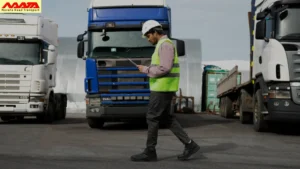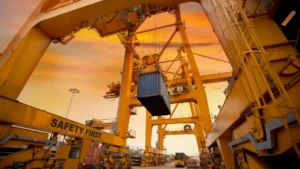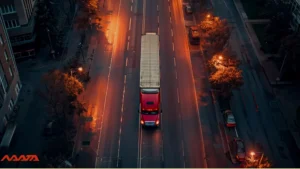Transportation Companies During Lockdown, 2022
Table of Contents
Transportation Companies During Lockdown
The 2019 Business Analysis Reports Claimed that 2020 was going to be a gaming changing year for transportation.
According to experts, The logistics Industries in India was forecasted to grow at a CAGR of 10.5% between 2019 and 2025 and the report state the reason:
“Advancements in digital technologies, changing consumer preferences due to eCommerce, government reforms, and shift in service sourcing strategies are expected to lead the transformation of the Indian logistics ecosystem.
Digitalization will improve the efficiency and performance in freight management and port operations.Warehouse automation will help achieve operational efficiencies to counter supply-chain cost pressures in the industry. Increased investment in infrastructure, last-mile connectivity, and emerging technologies are streamlining the logistics landscape in India.”
But 2020 plans are different from the expectations. It said the nationwide lockdown announced to contain the coronavirus outbreak has impacted industries and their operations have come to a standstill.
It said the concerns on account of Covid-19 have morphed from the impact of imports on domestic supply chains, into a domestic and external demand shock, with social distancing and lockdowns leading to production shutdowns and transportation halt.
The world’s biggest lockdown has brought transportation of goods in India to a near halt, even though the central government has exempted the sector (transportation companies) from restrictions to halt the spread of coronavirus.
Trucking has emerged as a major choke-point in global supply chains for everything from food to medical supplies as governments take stringent steps to contain the pandemic, restricting the movement of vehicles and people to drive them
You May Also Like To Read: Road Transport Industry After Lockdown, 2022
A lot has been spoken about the effects of Covid-19 on the economy. The government, large corporates, and the MSME sector are keen to reboot activities that have come to a halt due to the lockdown. Logistics Industries, including transportation, warehousing, order management, and other value-added activities, would be critical for the revival of economic activities. One may have to look at numerous aspects of each of the logistics functions.
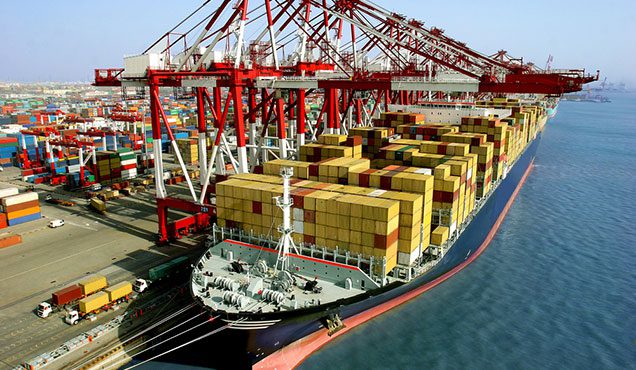
Transportation Companies During Lockdown Transportation Companies During Lockdown
Road Transportation Companies During Lockdown
Daily movement of trucks has collapsed to less than 10% of normal levels, according to All India Motor Transport Congress, an umbrella body of goods vehicle operators representing about 10 million truckers.
Road transport accounts for about 60% of freight traffic in India and 87% of its passenger traffic, according to Road ministry.
Starting April 20, the central government relaxed certain lockdown guidelines to restart select commercial activities such as the transport of goods.
All goods, not just essential products as permitted in the first phase of what is now an over 40-day nation-wide lockdown. Yet only 15 to 20 percent of the over 90 lakh trucks in India are back on the road.
The reasons range from hurdles in accessing e-passes needed to travel across districts and states, to absent truck drivers, to lack of labour to load goods at factories and warehouses.
Transportation Companies during lockdown aren’t able to open warehouses, consolidation is not taking place, parcel movement is not taking place, express movement is not taking place, Pradeep Singal, national president of All India Transporters Welfare
It will take some more time I think, one to one and a half months before normalcy returns, even after the full lockdown is removed (May 4). For the markets to start, for factories to start, and the loads to be available from both sides.
According to a report, over 20 per cent of the trucks are stuck on the roads across the country. Drivers and support personnel could be anywhere around 30 lakh. Most of them face a loss of income. One can categorise trucks as those with large operators (either 4PL or 3PLs) as part of a contract engagement and those running as market vehicles.
In India, the rail transport is supply-driven. The government and related agencies use rail for the movement of crude and petroleum, coal, minerals, and so on. Since the user companies are not operating in full capacity, it will return to normalcy. It is likely that the railways is using the lockdown for optimal redistribution of foodgrains. Analytics can be deployed for better capacity utilisation of cargo movement when the lockdown is in force, and passenger movement is restricted.
The emotional health of many truck drivers have been affected . A lot of ground-level support through counselling will be required. NGOs and professionals can be engaged in providing comfort to this group of employees and getting them back on board.

It is important to note that their commercials for the load on the road would not have factored Covid. Hence, they, including project cargo, will have to renegotiate the same. Maybe one learning is to include a variation or compensation clause in contracts under force majeure conditions.
Transportation Companies During Lockdown Transportation Companies During Lockdown road transport road transport
Covid Impact on Logistics Industries
The COVID-19 outbreak that started engulfing various nations across the globe is forcing governments, national and international authorities to take unprecedented measures such as lockdown of cities and restricting the movement of people to check and control the exponential spread of the pandemic. This has consequently affected global trade and supply chain which has come to almost a standstill.
Most countries have restricted or stopped international flights and air travel, which has led to a deferred slowdown as far as the movement of goods are concerned. This has in turn shrunk the air freight capacity limited to the available and operational cargo aircraft and ferry passenger flights carrying only cargo. The shipping sector has also been hit as vessels are placed under quarantine for weeks before being allowed into the ports thereby slowing down processes. Shipping containers are stuck at the ports and on transit at state borders.
At the same time, raw materials or manufactured goods are unable to reach ports due to the lockdowns. Moreover, the demand for raw materials has reduced for the most traded commodities as most countries now require medicines, pharmaceuticals, medical supplies and medical equipment. Hence, shipping lines are operating underloaded thereby disrupting the balance of the ratio between revenue and the operational costs. Furthermore, there is a severe shortage of manpower at the air cargo facilities, terminals, shipping ports, inland container depots, warehouses, customs, government authorities and so on due to lockdowns which again hinders any scope of supply chain movement.
Availability of workers at factories and trucks for transportation remain key challenges to meet demand for essential items during the lockdown due to coronavirus pandemic, according to FMCG (fast moving consumer goods) majors ITC, Dabur India and Parle Products.
The companies, however, said the approvals for plant operations and transportation of goods have eased difficulties in movement of raw materials and finished products, assuring steady supply of essential items.
Secondly, there are vehicles owned or placed with leading fourth-party and third-party Logistics Industries who are on long hauls across the length and breadth of the nation. Such vehicles typically have aggregators (also known as market intermediaries or brokers) who have contracted a group of vehicles and placed under their aegis. They will bill with the 3PL operator and, in turn, pay the vehicle owner who bears all the operating expenses.
When the vehicles are on the move, they have designated pit-stops and other support mechanisms every 300-600 km in all major routes. When the lockdown was announced, most of the vehicles could park in the pit-stops, and the drivers were reasonably taken care of by the owners. When the system came to a halt, the number of vehicles required to be parked increased phenomenally, and the drivers used nearby villages as well to park. However, the drivers did not have the wherewithal to stay on and take care of the vehicles.
Once the vehicles resume operations, money for variable expenses to continue travel would be required. This needs to be provided at whichever place the drivers are. One may argue that with digital pay and ATMs, they may be able to handle the same. If not enabled till now, the contractors of the vehicles in coordination with 3PL operators may have to support the drivers and vehicle owners. Else, cash transfer can be made once they find nodal points.
Cash required would be higher than during normal business because once the clog is released, traffic may pile up at terminal points. There is likely to be a delay in turnaround time. It is estimated that the delay would be anywhere between five and seven days for the first four weeks.
In large projects, it would take time to mobilise the unloading contractors. In such projects, delays can go up to 30 days with the pile-up of vehicles. There are likely to be delays in organising return loads as well. These shouldn’t be a problem for 3PL provided the business conditions return to normal quickly. Hence, 3PL operators will have to provide for asset inefficiency. One may, however, have to see how the costs are recovered over time.
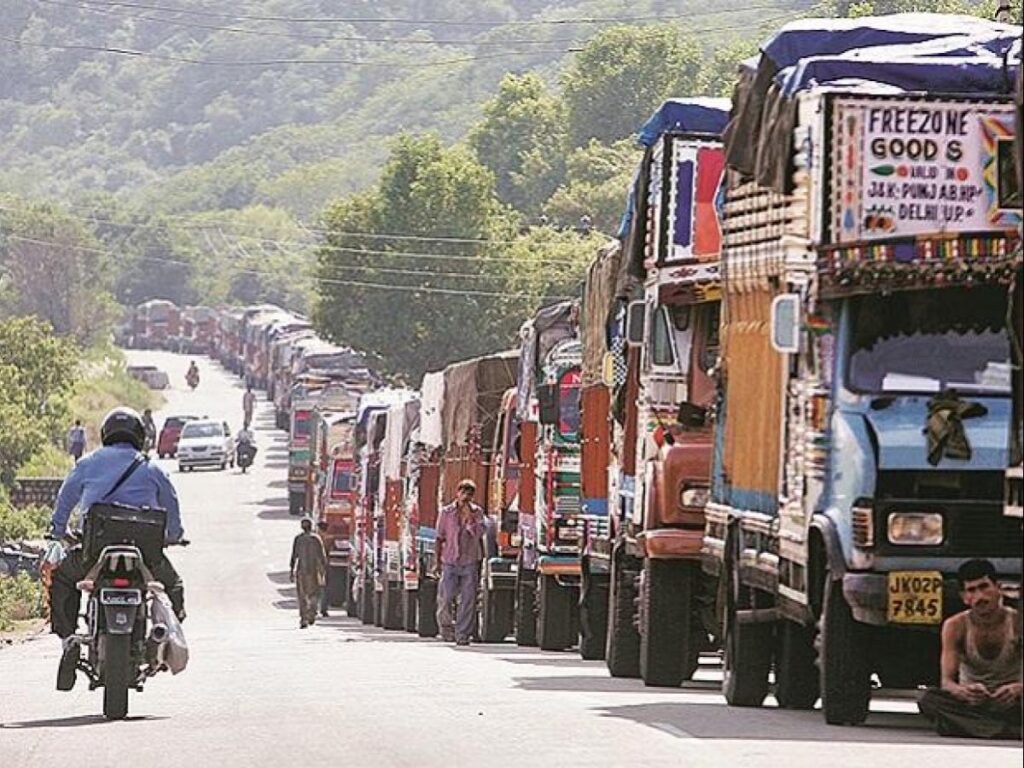
Transportation Companies During Lockdown Transportation Companies During Lockdown
Transport Industry After Lockdown
After Lockdown many businesses will restart their operations with full fledge-
The e-commerce markets like Amazon and Flipkart who have suspended their logistic services for sellers will be rehiring them again. This is an area where the transport industry and logistics startup have the opportunity to look forward.
The Corona Virus Lockdown disruption has also hit pharmaceutical players, delaying shipments of medicines and protective health gear like Medikabazaar, a business-to-business seller of medical supplies, has even struggled to get consignments to hospitals due to a shortage of trucks. A new start after lockdown will smooth the pharmaceutical shipments once again.
The slowdown of manufacturing and agricultural sector has remarkably affected the transport industry. Though transport Industries are the exempted sector but yet firms have to face a lot of issues in transporting sector. The manufacturing and agricultural sector has a direct impact on the Transport Sector.
In a situation like Corona Virus Lockdown, the supply chain for important things is becoming a big challenge. Truck drivers are leaving the vehicles on the highway and going back home. Manufacturers are running out of stocks and delivery agents of e-tailers refuse to go out due to fear of police harassment many have even reported that police demanded them bribe to allow them to deliver their goods. In such a situation, it has become a major challenge for the government and the administration.
As the government prepares to lift the lockdown in phases, the demand for trucks will increase but transport companies say the big challenge will be convincing drivers to return to work, even with higher salaries and allowances on offer.
Transport Industry will witness stressing and engaging journey after the lockdown because of mass hiring due to lack of labor, pending orders of the non-essential goods with the new ones coming in will add an extra burden.
Many sectors are unforeseeable even after the lockdown. Mainly the non-essential and luxurious product manufacturing and delivering services. This sector is very uncertain after the chaos because of the world-wide Corona Virus Lockdown.
This remarkable economic crisis across the country has just not affected the businesses but everyone and many problems and challenges will arise during and after the lockdown. Doubtlessly, these miserable events will act as the wake-up call to many companies and will strategize their future policies or events in a better way.
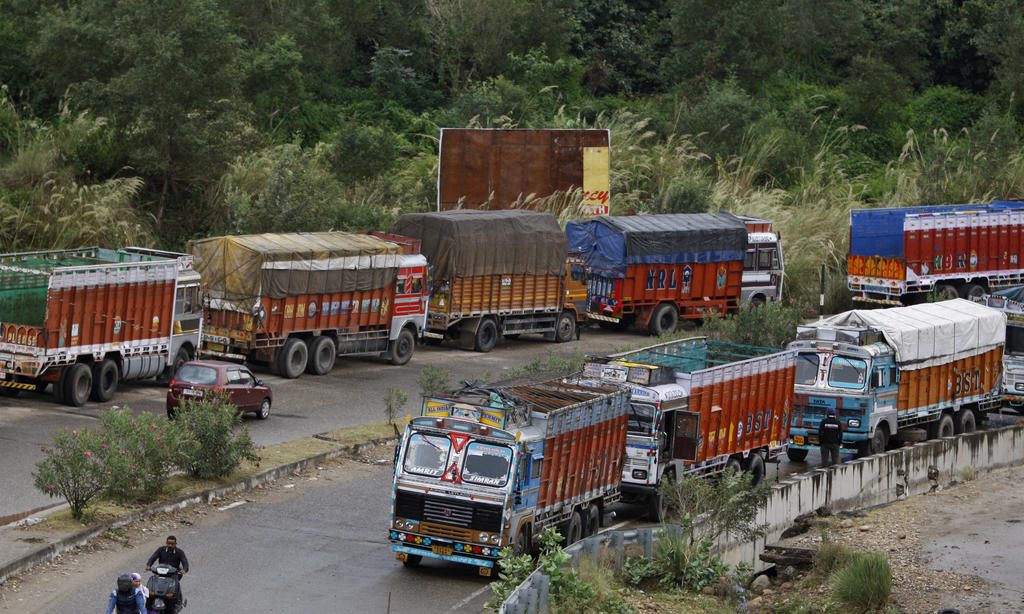
Transportation Companies During Lockdown Transportation Companies During Lockdown
Transportation Companies During Lockdown Guidelines for the Workplace
01. Thermal Screening Before Entering the workplace.
02. Use Max, Disposable hand Gloves at the workplace.
03. Sir at a distance of 5ft from other staff.
04. Disinfect workplace with spray or by sanitizing manually.
05. Maintain hygiene in toilets.
o6. Place sanitizer liquid dispenser at important points.
07. Train labor to maintain social distancing while loading/unloading.
08. Vehicle be disinfected before loading and unloading.
09. Do not allow staff above 0 years to work at the workplace.
10. Do not allow a person to work if he feels any sickness.
11. No Crowding.
12. No Visitors.
Transportation Companies During Lockdown Transportation Companies During Lockdown road transport road transport road transport road transport road transport
Long-Term Impact of Pandemic on Logistics
The recovery and long-term impact of the pandemic on logistics may be affected by adaptions
and factors, as described below:
● Increased dedicated air cargo capacity: The airline industry is already reallocating fleet to
exclusively serve air cargo demand.
● Increased cargo inspections and cross border control protocols: Governments have
responded to the crisis with temporary trade embargoes and export restrictions for sensitive
cargo (such as medical supplies, pharmaceuticals). In the longer term, logistics costs may
increase due to tighter cross-border processes and controls fueled by concerns regarding the
transmission of diseases.
● Technology and e-commerce rise: Logistics has been in the midst of a tech-driven revolution.
Companies with robust digital capabilities that allow them to provide cargo visibility/traceability
and do business online are at an advantage. This would entail investments in technology, such
as the Internet of Things (IoT), cloud computing, automation, and data analytics. In the long
term, robotics, drones, and autonomous vehicles might reduce logistics services providers’
exposure to labor shortages.
● Reconfiguration of global value chains: The pandemic has exposed the vulnerability of
extended and complex value chains to production disruptions, particularly in the East Asia
Pacific region. As a reaction, many of these supply chains may shorten or diversify through
reliance on alternative partners (for example, nearshoring) or intensified efforts to bring
home (such as reshoring) strategic value chains.
The shortening of supply chains may benefit
countries with capable manufacturing sectors and beneficial exports’ policy (for example,
Colombia, India, and Mexico) to partially substitute China over the medium term. There may
also be a trend towards placing additional warehousing capacity or dry ports near demand
centers to shorten the time to get goods to market.
● Recovery prospects will vary by country, subsector: As logistics is a diverse sector, recovery
prospects will vary depending on the length of lockdowns and the duration of the subsequent
economic crisis. Large companies with a diversified business (such as multiple clients, serving
different sectors in various countries/states) will be better placed to weather the storm.
Transportation Companies During Lockdown Transportation Companies During Lockdown road transport road transport
After-effects of Corona Lockdown
It is significant that these problems will increase even after the business operations resume. Doubtlessly, these miserable events will act as the wake-up call to many companies and will strategize their future policies or events in a better way. Due to the Impact of Coronavirus on Road Transport, The fleet owners, in order to tackle this storm, should deal with this scenario efficiently by optimizing operations and embracing digital technology thereby reducing human intervention.
Powered By 360Presence
Transportation Companies During Lockdown Transportation Companies During Lockdown Transportation Companies During Lockdown Transportation Companies During Lockdown Transportation Companies During Lockdown road transport road transport






